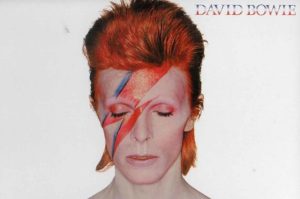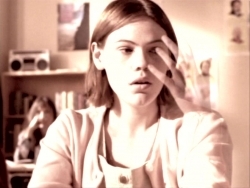I.
In the Left 4 Dead video games, most levels are bookended by “Safe Rooms.” You leave the Safe Room at the start of a level, and the goal is to survive the trek to the Safe Room at the end of the level. The thing about these Safe Rooms is that they really are safe. Once you are securely inside them, you can’t be hurt by the zombies in any way. It’s a huge relief to rush inside one at the end of a level.
For a significant portion of the female population, the world is filled with predators. They have to be on gaurd at all times while around then, a message that is repeated to them over and over from all sides, and which is often personally reinforced through traumatic violence. Yes, not all men, but enough that one lets down their guard only at their own peril.
Through a confluence of social conventions, however, there is a sort of quasi-safe-room available in many public locations. This doesn’t by any means fix the problem, but it does sometimes help a bit. I was unaware of these safe rooms until a friend clarified for me. If a creepy man is following a woman around, maybe harassing her, just doing all sorts of things that make her feel very uncomfortable and threatened, there’s a sort of temporary escape that is sometimes avilable. Currently, a woman can duck into a bathroom with the full assurance that any man that tried to follow her in there would be stopped by anyone else around — men and women. She has the full force of society behind her to have that safe spot that no one man can enter, and she needs to give no reasons or excuses to go in there. It is unconditional.
There’s a number of advantages to bathrooms doubling as safe spaces. A man can’t follow his wife into one (for the publicly-given reason that they are public and he may be intruding on people who are not his wife). A woman can extricate herself from an iffy situation by claiming she needs to pee even if she doesn’t because that’s a plausible excuse at any time and can’t nobody contradict her — there’s no requirement to declare fear. Perhaps most importantly: there are practical reasons and legal requirements that such rooms be available in nearly all public areas. It would be much harder to have simple “safe rooms” set up everywhere for the explicit purpose of protecting women.
II.
I have recently been presented with arguments that such safe rooms are not necessary, and in fact may do more harm than good. ie:
At a certain point you’re just feeding into bad intuitions and anxiety, and it is bad to encourage a constant state of unjustified anxiety. Claims that “men are so violent and unpredictable that we as a society have provided you emergency anti-man zones for your safety” are hyperbolic and misandrist.
Moreover, there are some things that become less safe because we as a society think they aren’t. If there are more women walking around after dark, those women in general will be more safe. And since a lot of the harassment is partially caused by the general perception that women are weak and scared and in danger, because some people enjoy the power trip, if we could get rid of this cultural assumption it’d probably help. Introducing bathroom asymmetry reinforces the “women are Different” idea and that’s harmful.
Furthermore, while it would certainly make the most afraid people more axious (until they were able to see violence hasn’t increased and they are able to adjust to the lived experience of a less-scary world) the gains from making more of society gender-neutral outweigh the discomfort people would experience during the transition.
I am not yet convinced by these arguments. But I think they have potential. I am including them for completeness sake.
III.
Let us assume for the rest of this post that it is a good thing to have safe spaces for women in society, even though that might not be the case.
A particularly vulnerable subset of women are transwomen. In many areas transwomen are targetted for violence at a higher rate than ciswomen, and with greater ferocity. They are in even greater need of such safe spaces than ciswomen (though admitedly in much smaller numbers).
If we grant that safe spaces should exist, that means common, legally required, and socially-sanctioned safe areas must be designated as places that men can’t go. Society will discourage them from entering, and possibly stop them if required.
Allow me to slightly rephrase, since we are living in a period of vocabulary transition and words can mean a number of different things that people can (and do) misrepresent.
To go into women’s bathrooms one simply has to be a woman, whether cis or trans. Men (meaning cis and trans) shouldn’t be allowed in women’s restrooms if we want to preserve them as safe spaces.
In practice, this means bystanders prevent cismen & transmen from going into women’s restrooms. And “Does the person in question look like a man” is the only criteria they can reasonably use.
Yes, there is a subset of women (both cis and trans) that may look masculine enough that they are geninuely mistaken for men and trigger a safe-space-protection response. This sucks. I’m not sure what can be done about that while preserving the safe-space concept. I assume it will be pretty rare.
It is, of course, possible to go to entirely ungendered bathrooms if we want to simply preserve them as places people go to relieve themselves and abandon the safe-space idea entirely. But as long as it is a social goal to have an area that men aren’t allowed to enter, then people who are believed to be cis & transmen must actually be disallowed from entering it.
(To reiterate: the people who simply deny transwomen access to women’s bathrooms by saying “But thur men!” are assholes.)





